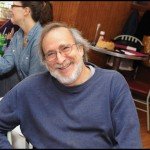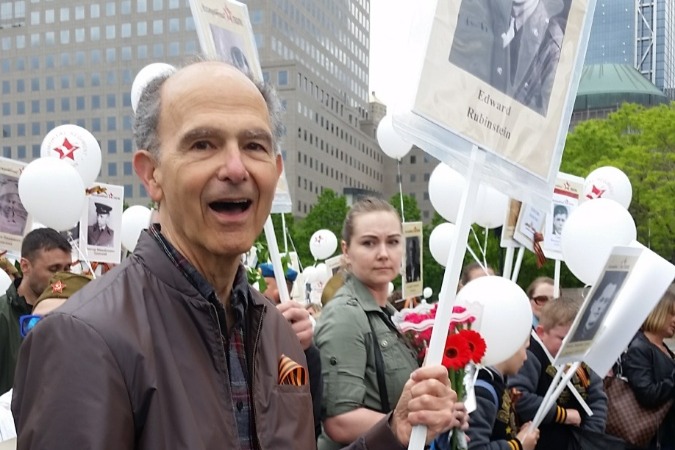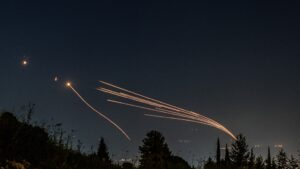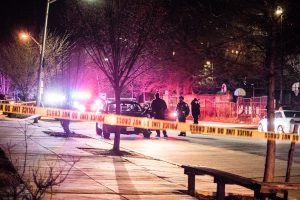On the evening after John F. Kennedy’s assassination, I got a telephone call from my friend Barry Director. Like everyone else in America on that nightmare weekend, he believed the United States was now going to hell.
“What are we gonna do?” he asked. “What’s gonna happen to the country?”
“I don’t know,” I said.
“Let’s call Phil,” Barry said. “He’ll know.”
Our friend Phil was 16. Barry and I were wise men of 18. Phil Rubinstein was the smartest guy in our old neighborhood gang (not that we were a Mensa chapter), and we were certain he would understand this tragedy in ways nobody else would.
Phil was an extraordinary kid in so many ways that it leaves everyone who knew him terribly saddened to learn that he died the other day, at 72, after several years of failing health.
He grew up on Kennison Avenue, just around the corner from the Chizuk Amuno Cemetery on Rogers Avenue. His house was a few doors down from Grove Park Elementary School, where kids in the neighborhood congregated every day for a full decade from the early 1950s through the Kennedy White House era.
In our schoolyard football games, Phil was the guy who was always picking up his yarmulke between plays.
There he was, catching a pass, running up the middle – and after each play, he’s bending over to find his yarmulke somewhere in the grass on the school’s upper field.
He was a ferociously competitive football player, a JCC basketball league all-star and later a varsity pitcher for the Johns Hopkins University baseball team. I always hated to bat against him in our neighborhood stickball games, even though it was only a tennis ball he was firing my way.
But he was caught between two worlds. Descended from rabbis, he spent his formative years at the Talmudical Academy. Athletic as he was, sports always took a backseat. He left high school at 15, then graduated Hopkins at 19, with a bachelor’s degree in philosophy.
Then, we started losing track of him. He went to the University of Washington in Seattle, got a master’s degree in philosophy and went for his Ph.D. at the same school, and then taught logic and philosophy there.
But he was restless to change things — like his life, or the whole wide world.
He’d come back east to visit his family, and we’d get a bunch of the old neighborhood guys together and catch up.
One night at Barry Director’s house, when we’d all reached our 20s, we agreed we were still trying to dodge traditional notions of adulthood. I have notes I wrote later that night, from a journal I kept back when I was trying to teach myself to write.
“Do you ever wonder what you’re gonna do when it’s really time to buckle down and be a grown-up?” I asked.
“Yeah, it’s scary,” Phil said. “I don’t want to sell out. I have one friend who went into advertising. Another’s in insurance. I wake up at night and wonder if it’ll happen to me.”
By now, he was involved in the civil rights and anti-war movements. After a while, his activism brought him back east to stay, mostly around New York, even as the political sands beneath him were shifting. He seemed adrift along both edges of politics.
Years would go by without a word from him. And then, a mutual friend asked one day, when we were all deep into our 30s, “You hear what Phil’s doing lately?”
“Something political?” I asked.
“Sort of,” the friend said drily. “He’s running for mayor of New York.”
That was 1985. He ran as Judah P. Rubinstein, since New York political candidates were required to run under their full names. I went up to see him, and sat waiting in a hotel lobby as some guy I didn’t recognize approached me.
“It’s me,” he said softly.
He was gaunt. His clothes seemed two sizes too big, and he had a middle-aged man’s thin chest and posture. But he was full of life, married and full of passion for his work.
He did a two-hour monologue where I barely got a word in. It was a cry against the economic system that keeps people permanently poor, a declaration of despair over the educational and cultural breakdown of America.
He knew he wouldn’t get elected mayor, and that was OK.
“It’s not the winning or the losing,” he said. “We’re talking about the life of an idea. Sometimes an idea can have a greater impact than the person who actually wins the race.”
He seemed a man trying to make peace with himself. It’s the journey of all thoughtful human beings. He said he wasn’t a very religious person any longer, but he talked about Moses descending from Mount Sinai with the Ten Commandments, only to find the children of Israel worshiping idols.
“God splits the Red Sea,” he said, laughing slightly. “He saves them. He gives them food in the desert, and they still aren’t happy. So I figure, if it takes a few years for me to get a few ideas across …”
He kept trying, across a whole lifetime. His was a voice out there in the shadows of American politics. He was the golden boy who might have done anything. What he did, I guess, was find something that felt like a worthwhile life. He was trying to make others see the light.
And that’s not a bad epitaph for anybody.

A former Baltimore Sun columnist and WJZ-TV commentator, Michael Olesker is the author of six books, including “Front Stoops in the Fifties: Baltimore Legends Come of Age” (Johns Hopkins University Press).





